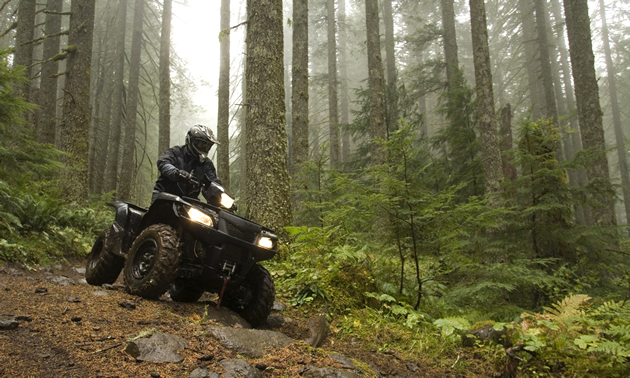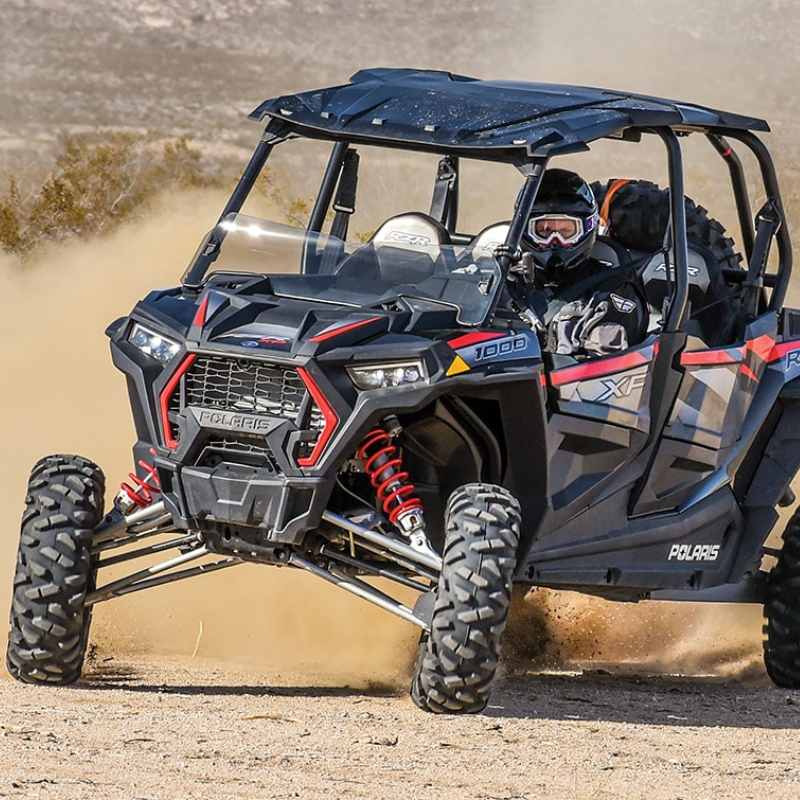There’s no doubt about it, insurance can be confusing. It can be particularly difficult to understand the policy for an off-road vehicle. Jennifer Appleby, a managing partner at Western Financial Group in B.C., has shared some helpful tips when it comes to insuring an off-road vehicle.
1. Legal requirements
Do you ride on forestry roads and/or Crown land? The minimum insurance requirement in B.C. is $200,000 liability. Appleby has found that ATVers are reasonably aware that they require some insurance and they could face fines if they’re not complying, not to mention the legal and financial implications of causing an accident. Legal minimum aside, an insurance broker will be able to help riders understand any additional coverage. There are also advantages to opting into insurance, even for those who will only be riding on privately owned land.
Changes are underway with off-road vehicle registration through the provincial government's Bill 13, the Off-Road Vehicle Act. These changes will help with stolen vehicle recovery and in regulating off-road users who ride irresponsibly. Appleby doesn’t expect that the legislation will have a major effect on the process and requirements for off-road vehicle insurance.
2. Vehicle coverage
When asked about the biggest insurance misconception, Appleby said that most people don’t understand that their vehicles aren’t covered by their home policy.
“People think, ‘Oh, I have a garage. Everything in my garage is covered, including my ATV or my side-by-side,’ and that’s just not the case,” she said.
A house policy doesn’t cover vehicles, apart from some very small exceptions that do not include off-road vehicles. This means that unless you secure a separate insurance policy, your vehicles won’t be covered. All Western Financial Group brokerage offices can insure ATVs, snowmobiles, etc.
3. Discounts
Make sure to ask about discounts when you purchase your insurance. You might qualify if you’re a member of an ATV club or organization, such as ATV/BC. Some private insurance agencies will give discounts for riders who have taken an approved safety course, or who carry other policies with the company. Membership or safety course discounts can be especially beneficial to ATVers.
4. Accident benefit
When you drive a car in Western Canada, your insurance policy will provide accident benefit coverage. This means that if you’re in an accident, regardless of fault, the insurance will cover the injury and associated costs.
“You can actually buy that with an ATV policy,” said Appleby. “So if you’re injured while you’re riding your ATV there is some accident benefit coverage. There is no other way for you to get that coverage. It doesn’t come through your home policy and it doesn’t come through your car policy.”
Riders might also want to consider collision and comprehensive coverage or insurance against theft for their off-road vehicles. Unfortunately it’s not infrequent for off-road vehicles to be stolen or in an accident.
5. Things to think about
Before you visit your insurance broker, think about the value of your vehicle. New off-road vehicles can qualify for replacement cost coverage. It’s also important to disclose how you’ll be using the machine. Will it only be used for recreation, or will you be using it for farming or other business applications?
As part of the insurance process you’ll be asked all the essential questions. Be sure to bring a list of questions of your own. It’s always best to have a full understanding of your coverage.








Comments